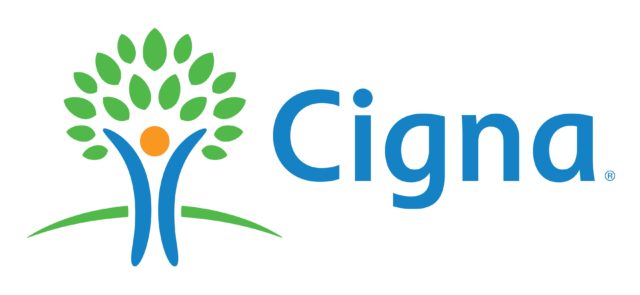- Markets with higher COVID-19 vaccination rates report better outlook on health and well-being
- Mental health seen as most important influence of whole person health, virtual mental health consultations increased 89 percent since beginning of pandemic
- Employees expect more from employers, including mental health support and workplace flexibility
HONG KONG, June 17, 2021 /PRNewswire/ — Cigna International released its seventh annual 360 Well-Being Survey with several new topics included to reveal the impact of COVID-19 on virtual health, whole person health, resilience and remote work. Opinion data from more than 18,000 adults in 21 markets across five continents confirms global pandemic recovery will require successful vaccination programs and a holistic view of supporting mental health by employers and governments.

Uptake of COVID-19 vaccinations linked to better outlook on health and well-being
Findings confirm the connection between greater vaccine uptake and access to successful vaccination programs, with more positive perceptions of health and well-being first shown in Cigna’s 2021 COVID-19 Vaccine Perception Survey. Among the markets with high vaccination rates, the United States, United Arab Emirates, Spain and Saudi Arabia, even reported well-being scores exceeding pre-pandemic levels.
In contrast, markets where vaccination rates are lower such as Japan, South Korea and Taiwan, had lower well-being scores, despite not yet experiencing surges in cases and still maintaining a relatively lower number of deaths related to COVID-19 at the time of the survey. This negative outlook may be linked to the struggle to reach herd immunity in those markets, a milestone that experts widely agree is the long-term solution to beating COVID-19.
“Even as we begin to see reasons for optimism, we are reminded that overcoming the pandemic and its impact on health and well-being requires a comprehensive global vaccination program and uptake. Our survey shows the pandemic has had a particularly negative impact on certain demographics and groups, and understanding this will be vital for businesses and policymakers alike,” said Jason Sadler, President, Cigna International.
Mental health, closely followed by physical health, seen as important influence on whole person health
72 percent of respondents rank mental health as the most important influence on personal health and well-being, followed by physical health at 70 percent. Although stigma around mental health persists, the rise in adoption and availability of virtual health tools offers an opportunity to help people access the care they need, when they need it. Globally, use of virtual consultations to access mental health therapy and counseling services increased 89 percent since the beginning of the pandemic, echoing data from the United States in Cigna’s One-Year Impact of COVID-19 report which showed nearly two-thirds of behavioral care was performed virtually.
Financial well-being concerns are prevalent
Only 28 percent of respondents are confident in their ability to maintain their current standard of living, and 19 percent of respondents say they feel very good or excellent when asked if they have sufficient money for retirement. The outlook was poorest in women, with significant concerns regarding long-term saving specifically reported in the 18-24 age group and retirement planning among those aged 50 to 64.
Family time boosts resilience – employers must rethink workforce strategies
This survey found that global working parents with younger children (aged under 18) reported the highest well-being score of 66.2 and are the most positive group across almost all elements of the five indices. The research found 83 percent of respondents in this group are confident in their ability to support their children’s education and 84 percent are positive about their ability to take care of their children’s health and well-being.
Respondents reported an increased desire to work from home, with 26 percent citing the greater connection with family as one of the key benefits of remote working. Employers should take note of this trend as employees now expect flexibility and better support in terms of access to health and well-being services, with mental health and stress management seen as critical elements, as well as financial advice.
“Health benefits and better work-life balance are key areas where employers fall short of employee expectations. As companies update employment policies post-pandemic, they will need to address these concerns to retain and attract the best talent,” said Michelle Leung, Human Resources Officer, Cigna International.
Download the report
The Cigna 360 Well-Being Survey measures perceptions of health and well-being based on five indices – family, financial, physical, social and work. The 2021 report includes additional topics of virtual health, whole health, resilience and working from home. Click here to download the full report.
Research methodology
Cigna partnered with Kantar, a leading data, insights, and consulting company, to survey 18,043 people, aged 18 and above, in 21 markets in April 2021, prior to the surges in COVID-19 cases in India and Taiwan. The markets covered in this survey are Australia, Belgium, China, Germany, Hong Kong, India, Indonesia, Japan, Kenya, New Zealand, Saudi Arabia, Singapore, South Korea, Spain, Taiwan, Thailand, The Netherlands, Turkey, United Arab Emirates, United Kingdom and United States of America.
Online sampling used respondents recruited from panels that undergo rigorous quality control and the panel composition is representative of the adult population in each of the surveyed markets.
About Cigna
Cigna Corporation (NYSE: CI) is a global health service company dedicated to improving the health, well-being and peace of mind of those we serve. Cigna delivers choice, predictability, affordability and access to quality care through integrated capabilities and connected, personalized solutions that advance whole person health. All products and services are provided exclusively by or through operating subsidiaries of Cigna Corporation, Evernorth companies or their affiliates, and Express Scripts companies or their affiliates. Such products and services include an integrated suite of health services, such as medical, dental, behavioral health, pharmacy, vision, supplemental benefits, and other related products. Cigna maintains sales capability in over 30 countries and jurisdictions, and has more than 175 million customer relationships throughout the world. To learn more about Cigna®, including links to follow us on Facebook or Twitter, visit www.cigna.com.
